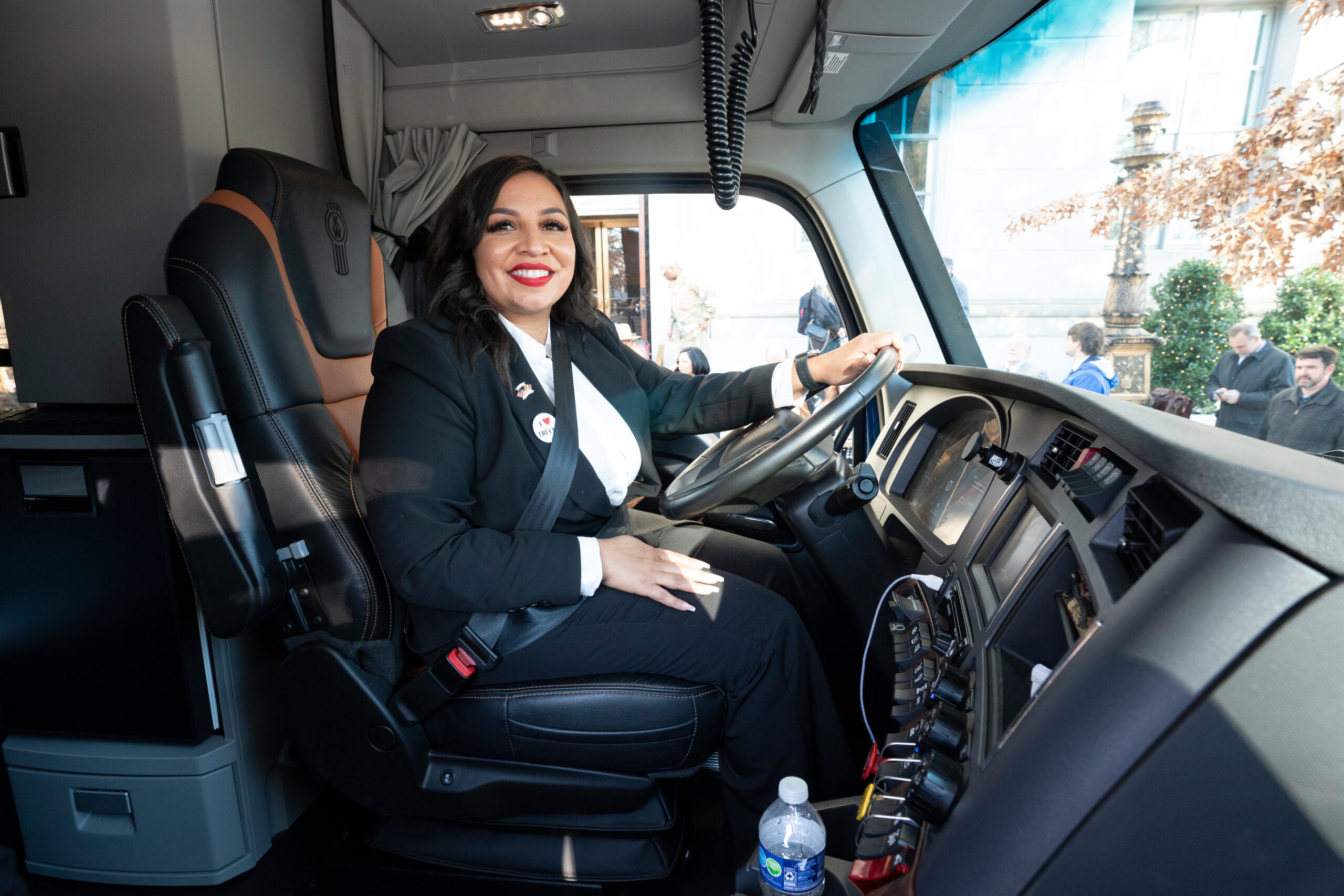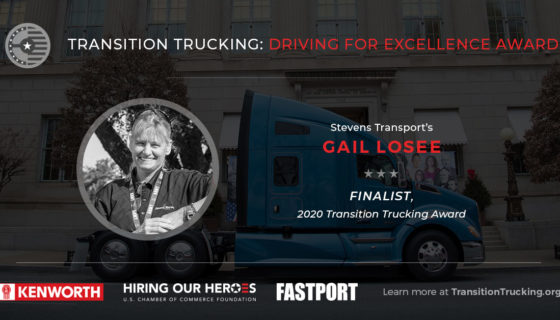Like Mother Like Daughter: Transition Trucking Winner Grows Family Trucking Business

Ashley Leiva never planned to follow in her mother’s footsteps.
“She instilled this idea that I needed to leave my small town, go out into the world, and do something great. And I did. I excelled in the Army,” Leiva said.
Leiva served in the Army for nearly 16 years before separating from service. Her transition plan focused on spending time with her young daughter while she pursued a business management degree.
Like so many veterans, Leiva’s transition didn’t go as planned. Life hit her with a detour.
Like Mother Like Daughter
“When my mom got stomach cancer, I had already submitted my papers to get out. I planned to get a job where I didn’t have to be away because I wanted to take care of my mom,” Leiva said.
Two months after her diagnosis, Ashley’s mom, Noemi passed away. She was 53 years old.
“It was really quick,” Leiva said.
After her mom’s death, Leiva felt lost. Her transition plan wasn’t working out. She needed a new plan, and she needed it now.
Her brother Johnny, who is also a military veteran, encouraged her to enroll in Del Mar College’s commercial driving program. He invited her to join the family business, Noemi Trucking.
“I didn’t have anything else planned out, so it was easy for me to get into the truck and do what I had to,” Leiva said.
Noemi successfully owned a trucking company for more than 20 years. And while she acknowledged the hardships of working in a male-dominant industry, Noemi also encouraged her children to consider it.
“She always told me how much she loved driving truck. She would often ask me, “what are you going to do when you get out of the Army?” and I would say, ‘I don’t know. I’m not going to be a truck driver,’” Leiva recalled.
Despite her earlier statements to the contrary, Leiva started hauling crude oil and mourning her mom inside her truck. Driving helped her heal.
“Getting into that truck made me feel closer to my mom because she spent so much time in it,” Leiva said.
And just like her mom, Leiva was a natural. “You know, how sometimes you get into a job, and you say, ‘this is not for me. I’m going to do something else.’ Well, [truck driving] wasn’t like that for me. It was easy for me. It was a natural fit, and I like it. No, I love it,” she said.
Winning the Transition Trucking Award Changed My Life
“I never thought I would be in this position. Winning the Transition Trucking award dramatically changed my life,” Leiva said.
Last December, Hiring Our Heroes, along with Kenworth and FASTPORT, awarded a brand-new Kenworth T680 Next Generation truck to Leiva as the 2022 Transition Trucking: Driving for Excellence award recipient. She is the first female veteran to receive the award.
“When I heard my name, it was overwhelming. After everything I’ve been through in the last few years, I lowered my head and thanked God. I know my mom has been having a lot of conversations with God for me,” she said.

Her prize package included a full-tuition scholarship presented by National University.
“It’s not only giving me a brand-new truck. It’s giving me another college degree. It’s giving me everything I need to run my business,” Leiva said. “Transition Trucking has changed how I look at life. I have so much gratitude for the people that support veterans.”
The Transition Trucking: Driving for Excellence award was launched in 2016 to address the nationwide driver shortage and create immediate jobs for transitioning military personnel, National Guard members and Reservists.
Trucking companies and CDL schools nominate veteran military drivers based on their performance. A public vote and an independent selection committee, including representatives from motor carriers, driver training schools, and trade associations, narrow the field down to semifinalists. Leiva was among 11 semifinalists in 2022.
“When I heard the other finalists’ stories, I thought there was no way they would pick me,” Leiva said. “I’ve never won anything.”
Before winning the Transition Trucking award, Leiva and her brother shared their mom’s truck. Now, both drivers have their own trucks.
“It has been easier not having to share one truck. We don’t have to worry about which one of us has to be in truck. It’s more income in our homes. We’re growing our business,” she said.



